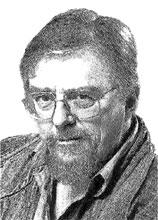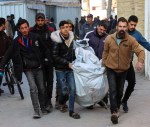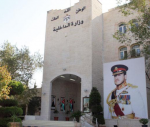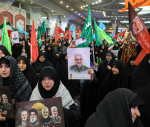You are here
Iraq’s new hope
Oct 04,2018 - Last updated at Oct 04,2018
Fifteen years after George W. Bush invaded Iraq to destroy Saddam Hussein’s imaginary “weapons of mass destruction”, what do the Iraqis have to show for it? There was a great deal of death and destruction; around half a million Iraqis have died violently since 2003, but they do now have a democratically elected government. Sort of.
Iraqis voted in their fourth free election last April, or rather fewer than half of them bothered to vote at all, so pessimistic were they about the notion that voting can change anything. And after the election, the politicians seemed to be living down to their expectations.
Almost six months later, the many political parties were still bickering over which of them would be in the government, which would give them access to the huge amounts of money that are available to government ministers in one of the world’s most corrupt countries. It looked like business as usual, despite bloody riots in the south, where most of the oil is, over chronic shortages of water, electricity and jobs.
But on Tuesday, the Iraqi parliament elected a prominent Kurdish politician, Barham Saleh, to the largely ceremonial office of president. The president then has fifteen days to nominate the new prime minister, who really runs the government, but Barham Saleh did it within hours. The new prime minister will be Adel Abdul Mahdi, which may be a signal of big changes coming.
Abdul Mahdi is not himself a revolutionary figure. He is a former finance and oil minister who, like Barham Saleh, has been a familiar fixture in Iraqi politics ever since the invasion. A stock Iraqi joke claims that the country has the most environmental government in the world, since it constantly recycles its old politicians.
But Abdul Mahdi is the figurehead of a coalition in which a revolutionary outsider, Muqtada Al Sadr, will be the dominant influence. Sadr’s party astonished everybody by winning the largest number of seats in the May election, drawing its support mainly from working-class Shiites in Baghdad and the south, but his non-sectarian stance also drew votes from the marginalised Sunni minority of Iraqi Arabs.
His party has been among the least corrupt on the Iraqi political scene, and he is a nationalist who is equally opposed to American and Iranian meddling in Iraqi politics. He has disbanded his own party’s militia and urges others to do the same, and he promised to appoint non-political technocrats instead of usual party stalwarts, if his party won power.
That promise will be hard to keep, since the extreme fragmentation of Iraqi politics means all governments must be broad coalitions. The coalition Sadr leads, although he will not personally seek office, includes the Iraqi Communist Party, which more or less shares his goals, and the group led by former prime minister Nouri Al Maliki, which emphatically does not.
Maliki, in power from 2006 to 2014, proved himself to be viciously anti-Sunni, largely subservient to Iranian interests, and, of course, monumentally corrupt. It will be very difficult to hold this coalition together, let alone to carry out Sadr’s programme of sectarian reconciliation and government by technocrats.
Corruption in Iraq is a system, not a series, of individual crimes and the beneficiaries of the system will fight tooth and nail to preserve it. The parties use it not only to finance their own activities and reward their own members, but to build a large support base through bribery, mostly in the form of jobs.
There are 37 million people in Iraq. In most other countries, a population of that size would require around 600,000-700,000 employees to provide all the normal functions of a central government.
The Iraqi government employs 4.5 million people to do the same jobs very badly or not at all. Many of them rarely even show up at work, but they and their families all vote for the right party at election-time. And since they are on the take themselves, they do not protest when the senior politicians in their party steal millions, or in some cases billions, from public funds.
This pattern is almost standard in countries whose income, like Iraq’s, comes largely from exporting a single natural resource, oil in this case, but Iraq is exceptional in the brazen incompetence of the political class and the utter neglect of those outside the magic circle.
This system was tolerated during the fifteen years of war because people’s first priority was survival. Now that the fighting has died down, people are starting to protest, and Muqtada Al Sadr has become the repository of their hopes. He will have a hard time living up to them.













